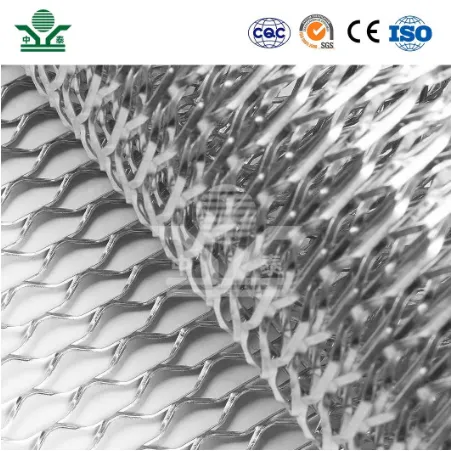The Benefits of Floor Grating in Modern Architecture and Industry
Floor grating, often overlooked in the design and construction of spaces, serves crucial roles across various industries and applications. Its practical uses, combined with the aesthetic versatility it offers, have made it a preferred choice for architects, builders, and facility managers. This article explores the many benefits of floor grating, from its functional characteristics to its contribution to safety and design.
1. Safety First
One of the foremost advantages of floor grating is its contribution to safety. In environments that are prone to spills or where heavy machinery operates, floor grating provides an anti-slip surface that enhances traction. The open design of grating allows for quick drainage, minimizing standing water or hazardous substances that could lead to accidents. Additionally, the structural integrity of grating materials, typically made from steel, aluminum, or fiberglass, ensures that it can withstand heavy weights without bending or breaking, making it suitable for high-traffic areas.
2. Aesthetic Flexibility
Floor grating is not merely utilitarian; it also offers significant aesthetic flexibility. Available in various materials, finishes, and patterns, it caters to diverse design preferences. From industrial settings to commercial spaces, grating can complement any decor theme. For instance, decorative grating made of stainless steel can add a modern touch to retail environments, while more robust designs are ideal for warehouses and factories. This versatility allows designers to maintain visual appeal while ensuring the functionality of the space.
3. Improved Ventilation
Another compelling reason to use floor grating, especially in industrial contexts, is improved ventilation. The open structure allows air to circulate freely, which is crucial in preventing the buildup of fumes or heat in work environments. This characteristic is especially relevant in areas housing machinery or chemical processes, where adequate airflow is essential for both safety and efficiency. Proper ventilation also contributes to a more comfortable working atmosphere for employees, promoting productivity and well-being.
floor grating

4. Durability and Low Maintenance
Choosing floor grating generally translates to better long-term value due to its durability. Grating is designed to withstand harsh conditions, from exposure to corrosive substances to extreme temperatures. The materials used, such as fiberglass-reinforced plastic, are particularly resistant to rust and deterioration, ensuring that investments in flooring can last for years without requiring frequent replacement. Moreover, grating is easy to clean, which reduces maintenance efforts and costs over time.
5. Environmental Considerations
In today’s world, sustainability is a rising concern, and floor grating can contribute positively to an eco-friendly approach in construction and design. Many grating materials, especially those made from recycled resources or those that are fully recyclable at the end of their life cycle, can help reduce a project’s carbon footprint. By choosing sustainable grating options, architects and builders can align their projects with modern environmental standards, appealing to increasingly eco-conscious consumers.
6. Customizable Solutions
The adaptability of floor grating is another important aspect worth mentioning. Custom solutions can be engineered to fit specific project needs, including unique sizes, load capacities, and finish types. Custom grating can also be designed to accommodate various applications, from outdoor patios that require slip resistance to indoor facilities needing heavy-duty flooring. This level of customization ensures that every project can be tailored to meet its unique demands while maximizing utility and aesthetic appeal.
Conclusion
In conclusion, floor grating is a multifaceted solution that marries safety, functionality, aesthetics, and sustainability in modern architectural and industrial environments. As industries continue to evolve, the demand for flooring that can meet diverse needs while standing up to the rigors of daily use will only grow. Embracing the benefits of floor grating not only enhances the performance of a space but also contributes positively to the overall design and experience. With its proven advantages, it’s clear that floor grating deserves a prominent place in the discussions surrounding modern construction and design.
-
Why Galvanized Trench Cover Steel Grating Resists Corrosion
NewsJul.10,2025
-
The Versatility and Strength of Stainless Expanded Metal Mesh
NewsJul.10,2025
-
Load Calculations in Steel Grating Platforms
NewsJul.10,2025
-
Keeping Pets and Kids Safe with Chicken Wire Deck Railing
NewsJul.10,2025
-
Hole Diameter and Pitch for Round Perforated Metal Sheets
NewsJul.10,2025
-
Aluminium Diamond Mesh in Modern Architecture
NewsJul.10,2025
Subscribe now!
Stay up to date with the latest on Fry Steeland industry news.

